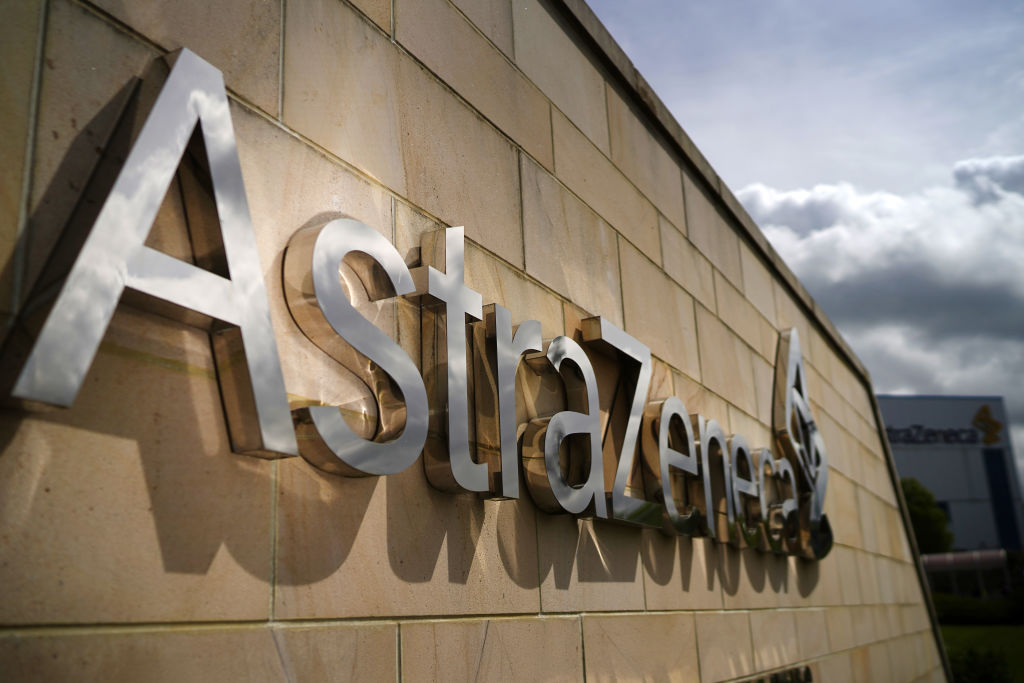
When breast cancer is classified as HER2 positive, it means this cancer-driving protein is abundant on the surface of cells. The protein’s discovery led to cancers being defined in a binary way—they either have HER2 or they don’t. Research spawned many medicines that block the protein but the problem is that for about half of breast cancers, it’s present at levels too low for HER2-targeting drugs to help.

When Investment Rhymes with Canada
Canada has a proud history of achievement in the areas of science and technology, and the field of biomanufacturing and life sciences is no exception.
Partners AstraZeneca and Daiichi Sankyo now have clinical data showing that their HER2-targeting drug, Enhertu, can address so-called “HER2-low” breast cancers. Results from a pivotal study show that their drug slashed the risk of the disease worsening or causing death by nearly half. The data were presented Sunday during the annual meeting of the American Society of Clinical Oncology in Chicago and published simultaneously in the New England Journal of Medicine.
“We haven’t had targeted therapy for this group of patients, which is a large subgroup of patients,” Shanu Modi, a medical oncologist at Memorial Sloan Kettering Cancer Center and the lead investigator of the study, said during a media briefing on the results. “We’ve been relegated to treating them as if they are HER2 negative. I think that’s why this data is so significant. It’s the first time we’re going to be able to extend HER2 targeted therapy to a whole new population of breast cancer patients.”
The Phase 3 test for Enhertu enrolled 557 patients whose HER2-low, metastatic breast cancer had been treated with one or two earlier lines of chemotherapy. Patients were randomly assigned to receive either the study drug or the physician’s choice of chemotherapy. The main goal was to assess progression-free survival, which is how long patients live without their disease worsening. The Enhertu group posted a median 10.1 months of progression-free survival compared to a median 5.4 months for those treated with chemotherapy. That’s a 49% reduction in the risk of disease progression or death for the study drug.
Enhertu belongs to a class of drugs called antibody drug conjugates (ADCs), therapies comprised of a targeting antibody linked to a cancer-killing drug payload. The drug pairs the antibody trastuzumab with deruxtecan, a drug that works by damaging cellular DNA in order to lead to cell death. This ADC was initially developed by Daiichi Sankyo. AstraZeneca began a partnership on the drug in 2019. Later that year, the FDA awarded Enhertu accelerated approval as a treatment for HER2-positive breast cancers that have not responded to at least two earlier HER2-targeting therapies.

Using Informed Awareness to Transform Care Coordination and Improve the Clinical and Patient Experience
This eBook, in collaboration with Care Logistics, details how hospitals and health systems can facilitate more effective decision-making by operationalizing elevated awareness.
The partners share in the development and commercialization of Enhertu globally, except for Japan, where Daiichi Sankyo holds all rights. A month ago, the FDA approved the drug as a second-line therapy for HER2-positive breast cancers, a decision that also converted the accelerated approval to a full approval.
Jane Meisel, a professor of hematology and oncology at the Emory University School of Medicine and an ASCO expert in breast cancers, said that she has seen Enhertu used as a second-line treatment for patients with HER2 positive cancer with strong results. She added that the new data in HER2-low breast cancer mean that the drug’s benefit extends to a new group of patients whose cancer is very difficult to treat or has progressed after multiple lines of treatment. “I think the results of this trial clearly will be practice changing,” Meisel said during the briefing.
Modi described Enhertu as a new generation of ADC, saying it has “advanced pharmaceutical properties compared to our other HER2 therapies in general, not just antibody drug conjugates.” In particular, she noted Enhertu’s capability of carrying a high drug payload. The drug’s linker technology also gives the drug an edge. She explained that Enhertu’s linker releases the payload in a such a way that the drug retains its ability to permeate HER2 positive cells as well as other cells that may not even express HER2.
Enhertu does come with some risk. Clinical testing has shown some cases of interstitial lung disease, which causes scarring and inflammation. Modi said that for most patients, this lung toxicity is low grade and reversible. In the pivotal test that led to approval of the drug as a second-line therapy, no high-grade events were reported. In the latest results reported this weekend, Modi acknowledged that there were three deaths. But she said that the rate of severe toxicities is declining and is now lower than it was in the clinical trial that supported Enhertu’s initial approval. Modi added that the way for clinicians to provide this therapy is by selecting the patients most appropriate for treatment and by monitoring for lung toxicity and managing it when it develops.
Photo: Christopher Furlong, Getty Images












